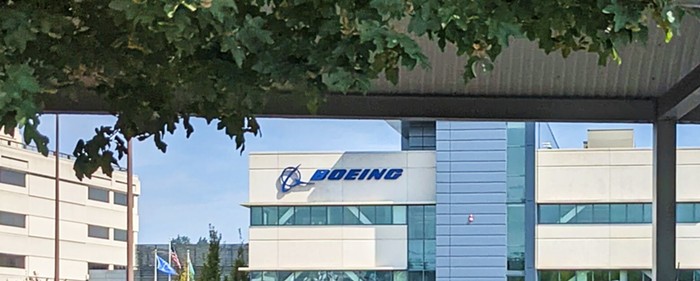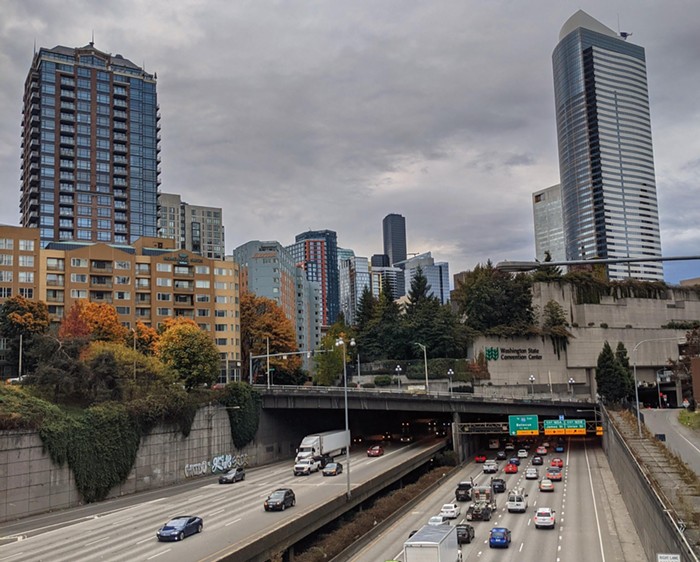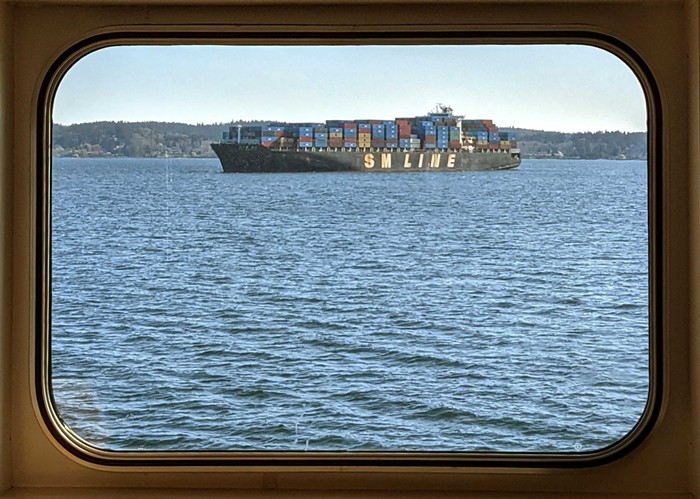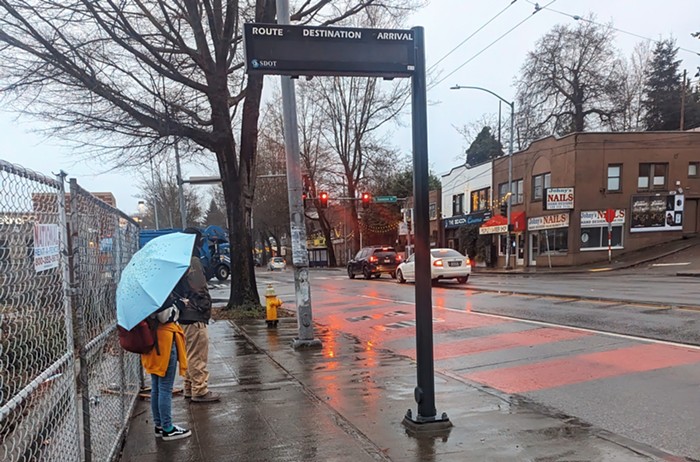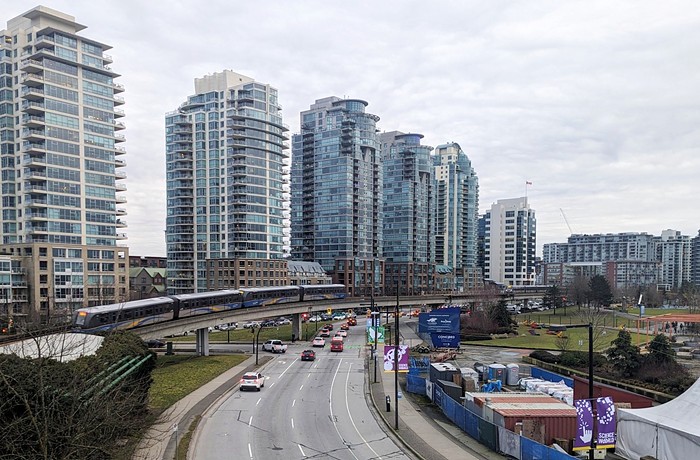
When I moved to the Central District, my one-way commute quadrupled from five minutes to 20. This was, as you can imagine, a challenge, but luckily there was a bus. I got through it. And then, two years later, when I moved from the CD to Bremerton, my 20-minute walk (or five-minute bus ride) turned into, on a good day, just over four hours roundtrip. On a bad day—like this past Monday, when the roads were too icy to bike and I had to walk to the ferry and then ended up missing the bus and walking up a small mountain to Capitol Hill—it can easily be over five hours. That's right: five hours to get to and from work. I've had entire relationships that lasted shorter.
And yet, five hours isn't even all that unusual. I met a woman on the ferry recently who lives in rural Port Orchard. She drives to a park and ride, takes a bus to the Port Orchard foot ferry, takes the Port Orchard foot ferry to the Bremerton ferry, takes the Bremerton ferry to Seattle, and then takes the bus from downtown to Wallingford. Her round-trip commute is easily six hours a day—and she does this daily. And still, life could be worse: the ferry is pleasant, with expansive views on clear days and alcohol and tater tots for sale in the galley. Other people do that kind of commuting in a car or on the bus.
Those of us who spend more than three hours commuting are known as "super commuters," and the number of us is on the rise, both in Seattle and across the U.S. This isn't really surprising: As cities get more expensive, the number of people who can afford to live in them tends to drop (thus, the influx of former Seattle residents to places like Kitsap County). Of course, life may be cheaper outside the cities, but there are some real downsides to spending a fourth of your waking hours in transit, both personally, financially, and for the environment. (This is especially true if you take ferries, which, while more comfortable than the bus, are a particularly dirty form of transportation. Washington ferries are the largest source of greenhouse gas emissions in state transportation. Last year, Gov. Inslee issued an executive order to transition to an all-electric fleet, but this will take years to accomplish.)
So what, exactly, is the longest commute in Seattle? It might be the woman in Port Orchard, but, frankly, I doubt it. I would imagine there are probably people who drive over from the Olympic Peninsula or up from Vancouver or down from Bellingham. Is this you? Are you one of the thousands of poor souls spending your life stuck in transit just to get to and from work? If so, I want to hear about it. If you have an epic commute (say, over five hours) reach out to me at kherzog@thestranger.com and we can trade tips on how to get through it.

